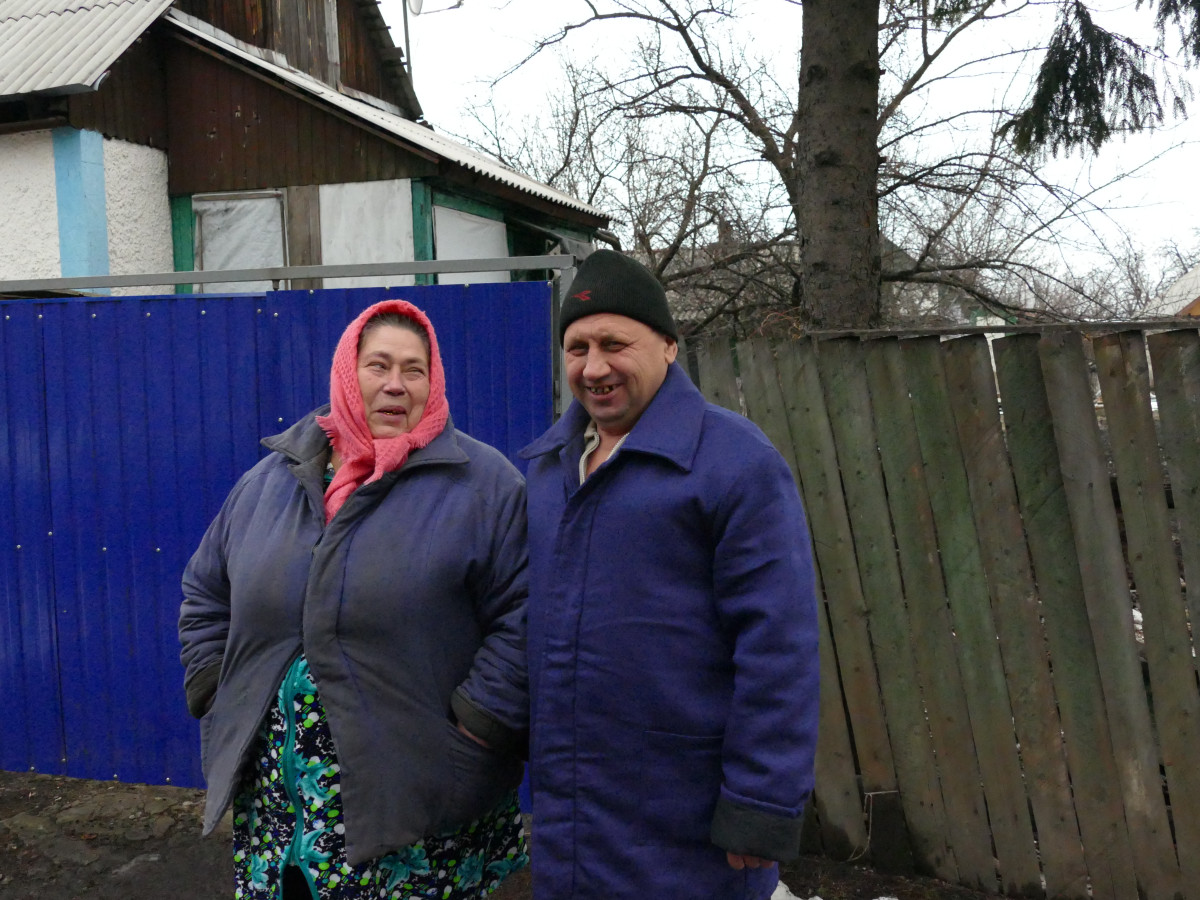Surviving winter on the frontline in eastern Ukraine
Published: Mar 4, 2020 Reading time: 2 minutes Share: Share an articleBefore war broke out in the Donbas region of Ukraine, Valentyna Mykolaivna and Leonid Volodymyrovych lived together in their house in Hutir Vilnyi, in the province of Donetsk. Even after fighting began, they remained in their village with no plans to leave, despite strong shelling in the area. But in 2018, soldiers urged the couple to leave their home as soon as possible to ensure their safety.

Left with no choice but to flee, Valentyna and Leonid joined their sons and their families in the village of Zolote III. Because they were in a hurry to leave and still harbored hope that their relocation would only be temporary, they did not take many clothes or other personal belongings. Now, however, the couple is approaching the two-year mark of their displacement.
“More than half of the population of Zolote III has fled,” says Valentyna. “Many of the houses are abandoned. Some people we know proposed that we could live in their relatives’ home, as they have left the area and are worried about leaving an empty house in the conflict zone. We agreed and moved in; we take care of the house and the garden. We like the new place, but we desperately miss our own home,” she adds.
Home destroyed by heavy fighting
The “contact line,” that separates Government- and Non-Government Controlled Areas (GCA and NGCA), has effectively isolated the community of Hutir Vilnyi. The home that Valentyna and Leonid built there was destroyed in heavy fighting, and they have had to register as internally displaced persons (IDPs) to obtain social benefits. Now they face a variety of challenges in accessing social entitlements, including pensions and government administrative services.
Thanks to generous financial support from the USAID’s Office of US Foreign Disaster Assistance, People in Need has been able to support the family with a contribution for the purchase of coal, wood, and other essential items. This will help them weather another brutal winter along the contact line.
“Finally, we managed to register as IDPs and receive social benefits,” says Leonid. “However, the benefits are very small and do not cover even our basic needs. We need to pay for medications, too, as Valentyna has issues with her leg after the stress she suffered. We also need to pay utilities, which are very expensive now. It’s good that humanitarian organizations are helping to support us,” adds Leonid.


